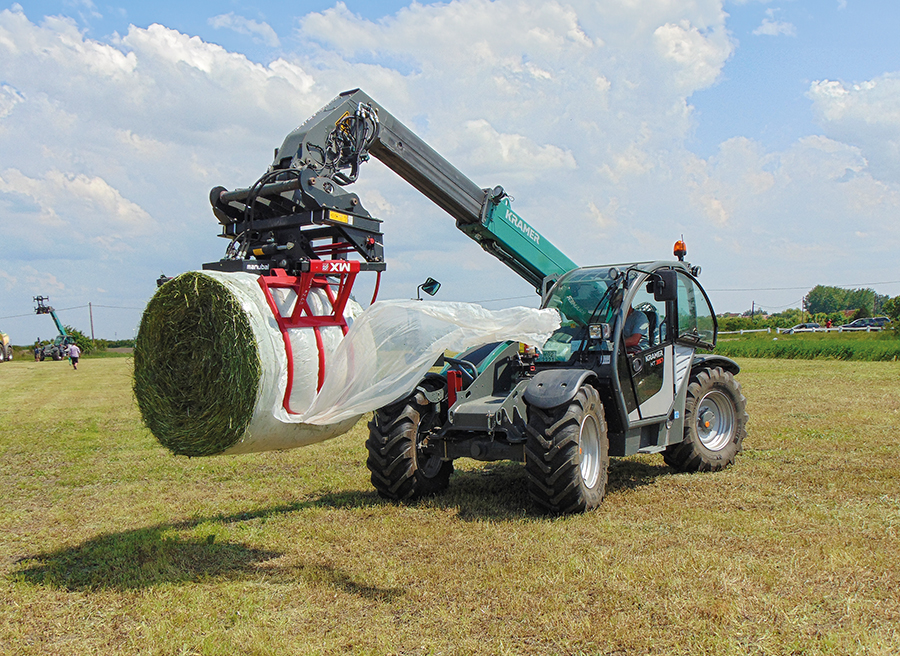Is your equipment compliant?
1st July 2024
LOLER and PUWER checks are essential for safety and ensuring HSE compliance. Keith Short of Wessex Inspections, offers advice.

Whilst farmers may be understandably concerned about HSE inspections, all the HSE is looking for is that all reasonable precautions have been taken, Keith explains. Whilst PUWER checks can be completed by the farmer, some may find it useful and time saving to have equipment checked by an experienced and qualified inspector, who can provide a certificate and reminders of when the next inspection is due.
“LOLER checks must however be carried out by a competent person with a thorough product knowledge and experience of the equipment inspected. Our ethos of providing a thorough inspection is fully HSE compliant in covering both LOLER and PUWER,” Keith adds.
What are the rules?
LOLER – Lifting Operations and Lifting Equipment Regulations 1998 – means that lifting operations using lifting equipment (such as telehandlers and forklifts) must be:
- Properly planned
- Carried out by sufficiently competent staff, who are properly supervised
- Carried out in a safe manner.
Meanwhile, PUWER – Provision and Use of Work Equipment Regulations 1998 – requires equipment provided for use at work to be:
- Suitable for the intended use
- Safe for use, maintained in a safe condition and inspected to ensure it is correctly installed and does not subsequently deteriorate
- Used only by people who have received adequate information, instruction and training
- Accompanied by suitable health and safety measures, such as protective devices and controls. These will normally include guarding, emergency stop devices, adequate means of isolation from sources of energy, clearly visible markings and warning devices
- Used in accordance with specific requirements, for mobile work equipment and power presses.
Work equipment is defined as any machinery, appliance, apparatus, tool or installation for use at work. This could include anything from a telehandler to a loading shovel, or even hydraulic jacks which may be overlooked in the workshop.
Staying compliant
With a litany of jobs to do throughout the year, LOLER and PUWER checks can easily be missed or delayed, but they are essential for the safety of workers and demonstrating that all reasonable efforts have been made to prevent accidents.
Having grown up on a farm and later working with a dealer, Keith decided to get involved in safety inspections when, many years ago, a machine supplied by the dealer was later involved in a serious accident. The farmer was prosecuted (but the dealer was not) as the machine had not been checked or serviced in over a year and the operator was unskilled/untrained.
“When I first started doing this sort of work 15 years ago, my mentality was if we can save a serious injury or a fatality, we’ve done our job correctly,” Keith says.
“I know that people are worried if they have an HSE inspection but all the HSE are looking for – and they do tend to be reactive now, as opposed to proactive, in other words, they come out after an event has happened – is that all reasonable precautions have been taken. I can’t guarantee that an accident will never happen any more than anybody else can. All I can guarantee you is that the machine will be checked properly and it won’t be a fault with the machine that causes that accident. Which goes back to PUWER – providing the correct piece of equipment for the job in hand and making sure that piece of equipment is safe.”
However, the check alone is not enough, you must also have the certificate in place and record keeping, if there is any advisory action it must be taken, and operators must be trained and skilled to use the equipment, he adds.
Using an inspection service
For those considering an inspection service to handle their PUWER checks, the advantages include experienced and qualified inspectors, certificates and record keeping, and reminders when the next inspection is due, so it doesn’t get missed.
“We help to manage farmers’ machinery and equipment fleet in terms of record keeping, that the equipment has been checked and approved by a trained engineer with experience in agriculture. When it comes up for renewal, we’ve taken that worry away from them in that we’ll notify them when the machine is due for its next inspection.”
Contact Wessex Inspections directly for further advice.
Read more farm business news
